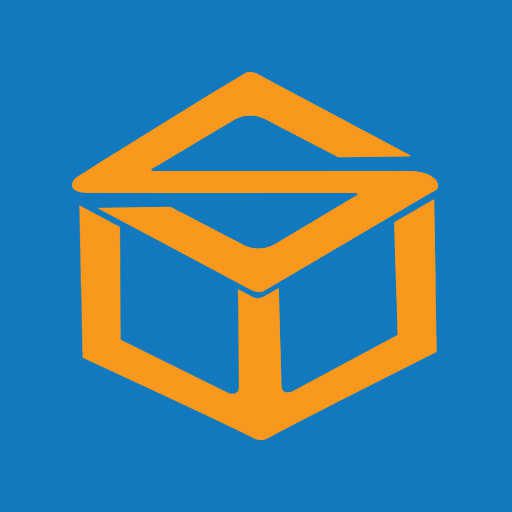Description

Inoday eCommerce Solution

Shipfusion
Comprehensive Overview: Inoday eCommerce Solution vs Shipfusion
Inoday eCommerce Solution and Shipfusion are two different entities providing distinct services within the eCommerce ecosystem. Let's take a closer look at each, focusing on their primary functions, target markets, market share, user base, and key differentiators.
a) Primary Functions and Target Markets
Inoday eCommerce Solution
Primary Functions:
- Inoday provides a suite of eCommerce solutions, including web and mobile app development, digital marketing, and ERP integrations.
- It specializes in custom development, offering tailored solutions for businesses seeking to establish or enhance their online presence.
- Integration with platforms like NetSuite is a significant component, facilitating streamlined business operations and data management.
Target Markets:
- Small to medium-sized enterprises (SMEs) looking for customizable eCommerce platforms.
- Businesses that require integration with ERP systems like NetSuite for improved operational efficiency.
- Companies seeking a scalable, flexible solution to expand their digital footprint.
Shipfusion
Primary Functions:
- Shipfusion is primarily a logistics and order fulfillment service that handles storage, packing, and shipping for eCommerce businesses.
- It offers inventory management, real-time tracking, and seamless integration with various eCommerce platforms like Shopify, WooCommerce, and Amazon.
Target Markets:
- eCommerce businesses of all sizes needing reliable and efficient fulfillment services.
- Companies that require end-to-end logistics solutions to manage their supply chain and distribution.
- Online stores looking for integration capabilities with major eCommerce platforms for streamlined operations.
b) Market Share and User Base
-
Inoday eCommerce Solution:
- Since it's more of a tailored service provider than a standalone software product, it's challenging to pinpoint an exact market share or user base. Instead, Inoday's success is more reflective of its partnerships and integrations with platforms like NetSuite.
- Its market presence is primarily among SMEs that require custom solutions for their specific business needs.
-
Shipfusion:
- As a fulfillment service, Shipfusion has a defined niche within the logistics and supply chain sector of eCommerce.
- While specific market share figures might not be publicly available, its partnerships with major eCommerce platforms and a growing user base signify a solid presence among companies seeking fulfillment services.
c) Key Differentiating Factors
-
Customization vs. Fulfillment:
- Inoday focuses on customization and integration of eCommerce platforms with ERP systems. Its strength lies in creating bespoke solutions catered to specific business processes.
- Shipfusion excels in logistics and fulfillment, offering a ready-to-use service for storage, packaging, and shipment, enhancing distribution efficiency.
-
Service Model:
- Inoday operates on a service-based model, providing consultancy and implementation for eCommerce and ERP integration.
- Shipfusion offers a tangible fulfillment service, emphasizing logistics, which is crucial for businesses that deal with physical goods.
-
Integration Capabilities:
- While both offer integration, Inoday's focus is on ERP systems like NetSuite, making it attractive for businesses needing comprehensive backend solutions.
- Shipfusion's integrations are more platform-centric, facilitating seamless connections with major eCommerce platforms to optimize the front-end operational aspects of order fulfillment.
Overall, the choice between Inoday and Shipfusion would largely depend on a business's primary needs—whether it requires customized eCommerce development and ERP integration or robust fulfillment and logistics solutions.
Contact Info

Year founded :
Not Available
Not Available
Not Available
Not Available
Not Available

Year founded :
2013
+1 800-800-8011
Not Available
Canada
http://www.linkedin.com/company/shipfusion
Feature Similarity Breakdown: Inoday eCommerce Solution, Shipfusion
To provide a comprehensive feature similarity breakdown for Inoday eCommerce Solution and Shipfusion, let's explore the aspects you mentioned: core features, user interfaces, and unique features.
a) Core Features in Common
Both Inoday eCommerce Solution and Shipfusion are designed to support eCommerce businesses, but they approach this functionality from slightly different perspectives. Here's a look at their common core features:
-
Order Management: Both platforms facilitate efficient order processing, tracking, and management to ensure smooth transactions and customer satisfaction.
-
Inventory Management: They offer tools for inventory tracking and management, helping businesses maintain optimal stock levels and reduce the risk of overselling.
-
Integration Capabilities: Both solutions provide integration options with major eCommerce platforms like Shopify, WooCommerce, and Amazon, allowing seamless operation across different sales channels.
-
Analytics and Reporting: Tools for generating insights into sales, inventory levels, and customer behavior are common in both solutions, assisting businesses in making data-driven decisions.
-
Fulfillment Services: Shipfusion specializes in this area, but Inoday may offer certain fulfillment support options directly or via third-party integrations to streamline shipping and handling.
b) User Interface Comparison
The user interface (UI) of these platforms can significantly affect the user experience, but as software tailored to different core functions, their interfaces cater to those specific needs.
-
Inoday eCommerce Solution: Typically, enterprise resource planning (ERP) solutions integrated with Inoday may have complex, feature-rich dashboards. These are designed for detailed control and customization, which might imply a steeper learning curve but offer comprehensive data at users’ fingertips.
-
Shipfusion: Known for focusing on fulfillment, Shipfusion’s UI might reflect streamlined, operational tasks with a more straightforward dashboard. This would facilitate quick access to fulfillment processes, shipping status, and inventory levels, providing a user-friendly experience optimized for logistics and operations.
c) Unique Features
While there are overlaps in core features, each product also offers unique capabilities setting them apart:
-
Inoday eCommerce Solution:
- Custom ERP Integration: Inoday often provides ERP integration options and customizations, appealing to businesses looking to incorporate eCommerce into broader enterprise management systems.
- Business Process Automation: Inoday solutions might offer more extensive automation across various business operations beyond just eCommerce, into areas like accounting, HR, and CRM.
-
Shipfusion:
- Advanced Fulfillment Technology: Shipfusion provides specialized fulfillment services, including state-of-the-art warehouse management and technology that optimize picking, packing, and shipping processes.
- Real-time Inventory Visibility: Shipfusion focuses on offering detailed, real-time visibility into inventory across multiple locations, essential for businesses with large-scale operations requiring precise logistics handling.
In summary, while Inoday eCommerce Solution and Shipfusion share some eCommerce functionalities, they are tailored with distinct user experiences and specialized features based on their primary aims, which are broader business processing for Inoday and fulfillment technology for Shipfusion.
Features

Analytics and Reporting
Product Management
Customer Experience
Marketing Tools
User-Friendly Interface

Smart Inventory Management
Advanced Reporting Tools
Efficient Order Fulfillment
Seamless eCommerce Integration
Best Fit Use Cases: Inoday eCommerce Solution, Shipfusion
Inoday eCommerce Solution and Shipfusion cater to different aspects of the eCommerce and fulfillment ecosystem, and they each serve different types of businesses and scenarios. Here’s a detailed look at their best-fit use cases:
Inoday eCommerce Solution
a) Best choice for types of businesses or projects:
-
Small to Medium Enterprises (SMEs): Inoday’s eCommerce solution can be ideal for SMEs looking for scalable and customizable eCommerce platforms. These businesses often seek straightforward solutions that can grow alongside their business.
-
Businesses Seeking ERP Integration: Companies looking to integrate their eCommerce operations seamlessly with ERP (Enterprise Resource Planning) systems can benefit from Inoday’s solutions, especially if they are already using or considering solutions like NetSuite.
-
Customization and Development Needs: Businesses that require a high degree of customization and bespoke development can utilize Inoday’s skilled resources and expertise. This is particularly beneficial for companies needing unique eCommerce functionalities.
d) Catering to different industry verticals or company sizes:
-
Retail and Wholesale: Businesses in retail and wholesale can leverage Inoday’s integration capabilities with existing software, enhancing inventory management and sales operations.
-
Manufacturing and Distribution: Companies involved in manufacturing or distribution can benefit from the solution's ability to integrate supply chain management with front-end eCommerce.
Shipfusion
b) Preferred option scenarios:
-
Companies Needing Advanced Fulfillment Solutions: Shipfusion is ideal for businesses that prioritize efficient, reliable, and technologically advanced fulfillment services. Its modern fulfillment centers and technology ensure that orders are fulfilled quickly and accurately.
-
E-commerce Businesses with High Order Volumes: Businesses experiencing high order volumes or expecting growth would benefit from Shipfusion’s ability to scale operations efficiently.
-
Operations Requiring Multi-channel Fulfillment: Shipfusion supports multi-channel fulfillment, which is suitable for businesses that sell across various platforms like Amazon, Shopify, or eBay and need centralized fulfillment solutions.
d) Catering to different industry verticals or company sizes:
-
E-commerce and Retail Verticals: Shipfusion serves businesses across various e-commerce and retail sectors with its versatile fulfillment services.
-
Startups to Large Enterprises: The flexibility and scalability of Shipfusion’s services can accommodate both growing startups and established large enterprises, making it adaptable to varying business sizes.
In summary, Inoday eCommerce Solution is best suited for businesses looking to integrate robust eCommerce capabilities with existing systems and require customization, particularly in retail, wholesale, and manufacturing. Shipfusion, on the other hand, is the preferred choice for businesses that need efficient, scalable fulfillment solutions with strong logistics capabilities, suitable for eCommerce operations of varying sizes and complexities.
Pricing

Pricing Not Available

Pricing Not Available
Metrics History
Metrics History
Comparing teamSize across companies
Conclusion & Final Verdict: Inoday eCommerce Solution vs Shipfusion
To determine the best eCommerce solution between Inoday eCommerce Solution and Shipfusion, it's important to evaluate various factors including features, pricing, ease of use, scalability, and customer support. Here is an analysis that concludes the final verdict:
Conclusion and Final Verdict
a) Best Overall Value: After evaluating Inoday eCommerce Solution and Shipfusion, Shipfusion offers the best overall value for businesses that prioritize comprehensive logistics and fulfillment services along with their eCommerce needs. Shipfusion's strengths lie in its robust infrastructure, advanced inventory management, and seamless integration capabilities that are particularly beneficial for businesses experiencing rapid growth and shipping high volumes of products.
b) Pros and Cons:
Inoday eCommerce Solution:
- Pros:
- Strong focus on customizability and flexibility in eCommerce platform development.
- Excellent options for integration with existing business systems (e.g., ERP solutions).
- Suitable for businesses focused on tailored eCommerce experiences.
- Cons:
- May require higher initial setup costs and technical expertise for customization.
- Limited when it comes to in-built logistics and fulfillment capabilities compared to specialized providers like Shipfusion.
Shipfusion:
- Pros:
- Extensive logistics network offering detailed shipping and warehousing solutions.
- Advanced inventory management and real-time tracking systems.
- Ideal for businesses that require a robust fulfillment infrastructure.
- Cons:
- Mainly focused on logistics and may not offer as much customization for storefront design and unique eCommerce features.
- Could lead to excessive reliance on third-party providers for other eCommerce solutions.
c) Recommendations: For users deciding between Inoday eCommerce Solution and Shipfusion, consider the following recommendations:
- If your business demands high levels of customization and you have resources to invest in tailored eCommerce platforms, Inoday may be the more fitting choice.
- For businesses that require extensive logistics, warehousing, and reliable fulfillment infrastructure, Shipfusion is likely the more advantageous option.
- Consider hybrid approaches if possible, leveraging Inoday for customized front-end experiences while integrating Shipfusion’s robust backend logistics support where necessary.
- Evaluate your long-term business goals and pick a solution that aligns with growth plans and covers your broad range of operational needs.
Ultimately, the decision should be influenced by the specific requirements of your business, the importance of logistics in your operation, and the resources available to customize and integrate solutions.
Add to compare
Add similar companies




